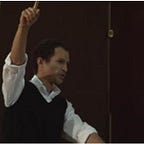What we learned from the NBC strike
The month-long strike by NBC workers marked a milestone in the struggle of the Namibian working class, inasmuch as it was the first time that media workers came out in significant numbers to stand up against injustice and inequality in the industry.
Many Namibians sympathise with the NBC workers, given that in December the management of the state broadcaster awarded themselves bonuses in excess of N$5.7 million, while insisting there is no money to raise the income of workers lower down on the pecking order.
The fact that NBC management had been deducting medical aid and other contributions without paying these deducted amounts to the service providers is another sign of acting in bad faith, and suggests they defrauded the workers through blatant misrepresentation (downright lying).
If the board had been fair in its distribution of bonuses, we could easily have accepted the argument that NBC cannot afford to increase their wages at this time, but the real source of the workers’ grievance was the downright discrimination and injustice perpetrated by the board.
‘Sold out’
After a hard-fought battle, it was tragic to see the way in which the union (NAPWU) agreed to end the strike without any mandate from the striking workers. The workers say they were “sold out” by the union bosses, who apparently made a deal with NBC management behind the workers’ backs.
As a result, many workers earned nothing for the past month. Some now face the threat of eviction and/or having their water cut, given that Windhoek Municipality resumed household water cuts this month, meaning NBC workers and their families now face hunger and increased health risks at a time when the country is seeing a rapid rise in Covid19 infections.
The main lesson to draw from this defeat and betrayal is that the unions cannot adequately represent the workers while affiliated to the ruling party, which is in effect the boss of the public sector. How can the union properly represent the workers if the union is in political alliance with the bosses?
As we’ve seen during public sector struggles in the past, when it comes to the crunch, the union bosses tend to side with Swapo, even if it means more hardship for the union members.
The main lesson is that until the workers can establish the independence of our unions and secure full democratic control of our unions, we will continue to suffer betrayals and be the victims of sinister backroom deals.
For the sake of transparency, NAPWU should be compelled to publish all the details of any and all negotiations, whether formal or in secret, that were held with regard to the strike at NBC.
Media bias
The strikers were also disappointed to read in Namibian Sun a front-page article published on 19 May, in which the unnamed reporter claimed NBC workers earn exorbitant salaries, with senior reporters taking home over N$41,000, a claim that is easily disproved by a glance at their pay-slips or by talking to the workers themselves, which he did not bother to.
The editor Toivo Ndjebela was recently named a “Champion of Media Freedom”, but here he failed to uphold the basic standards of journalism set out in the Media Code of Ethics, which stipulates that any original news report must carry a byline, must be accurate, and must offer a right of reply to those implicated.
When a reporter does not even want to put their name to their own report: that should raise alarm bells. Thus, Ndjebela fell short of the standards of his profession, but moreover his refusal to add the name of the author to that article in which they sought to defame the strikers, reeks of moral cowardice.
An inspirational struggle
In the course of this strike — the longest in the history of NBC — we learned some hard lessons: that the Swapo-controlled press is hostile to the working class; that the union bosses are in league with the ruling party and will always undermine our struggle for economic justice and equality; and that these company boards represent the interest of the elite and ruling class.
This is one of the reasons why as workers we must fight for representation on the boards of these public sector institutions to help curb corruption, mismanagement and downright hostile decisions by these Swapo appointees that invariably mismanage public sector institutions, leaving them on the brink of bankruptcy, as we saw also at New Era and Nampa.
Thus, in their quest for fairness, the strikers found themselves up against the State, against Swapo’s stooges on the company board, against Swapo’s goons in the union leadership, and its operatives in the media.
One more lesson of this strike is that we should not leave one section of workers to fight the struggle alone. Other sectors must come out in support and stand in solidarity with our brothers and sisters at the forefront, because only the combined force of the workers can secure a lasting victory.
Painful as it is, let us take our L — as the young people say — and accept that as workers we are really on our own. With that said, we must salute the NBC workers for their courage to stand up and fight injustice. And although we stumble from defeat to defeat, the day of our victory draws ever closer.
